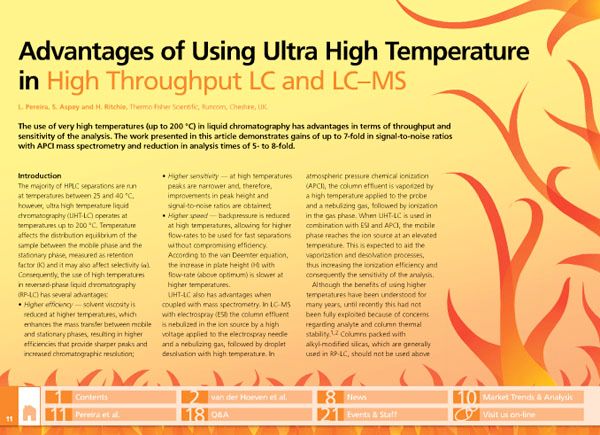Advantages of Using Ultra High Temperature in High Throughput LC and LC–MS
This work demonstrates gains of up to 7-fold in signal to noise ratio with APCI mass spectrometry and reduction in analysis times of 5- to 8-fold
The use of very high temperatures (up to 200 °C) in liquid chromatography has advantages in terms of throughput and sensitivity of the analysis. The work presented in this article demonstrates gains of up to 7-fold in signal-to-noise ratios with APCI mass spectrometry and reduction in analysis times of 5- to 8-fold.
New Method Explored for the Detection of CECs in Crops Irrigated with Contaminated Water
April 30th 2025This new study presents a validated QuEChERS–LC-MS/MS method for detecting eight persistent, mobile, and toxic substances in escarole, tomatoes, and tomato leaves irrigated with contaminated water.
University of Tasmania Researchers Explore Haloacetic Acid Determiniation in Water with capLC–MS
April 29th 2025Haloacetic acid detection has become important when analyzing drinking and swimming pool water. University of Tasmania researchers have begun applying capillary liquid chromatography as a means of detecting these substances.
Prioritizing Non-Target Screening in LC–HRMS Environmental Sample Analysis
April 28th 2025When analyzing samples using liquid chromatography–high-resolution mass spectrometry, there are various ways the processes can be improved. Researchers created new methods for prioritizing these strategies.

.png&w=3840&q=75)

.png&w=3840&q=75)



.png&w=3840&q=75)



.png&w=3840&q=75)







